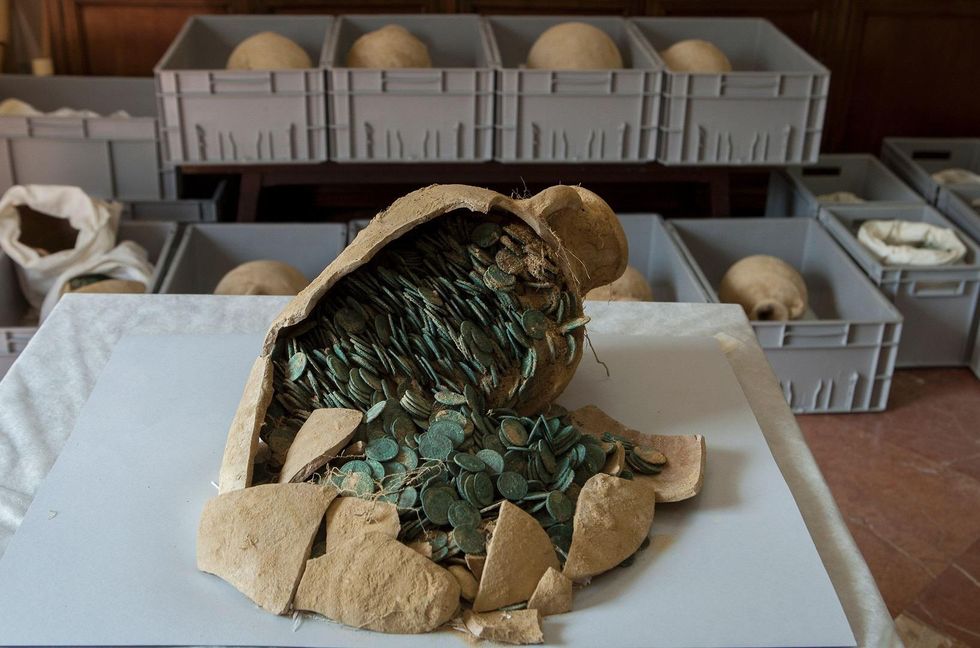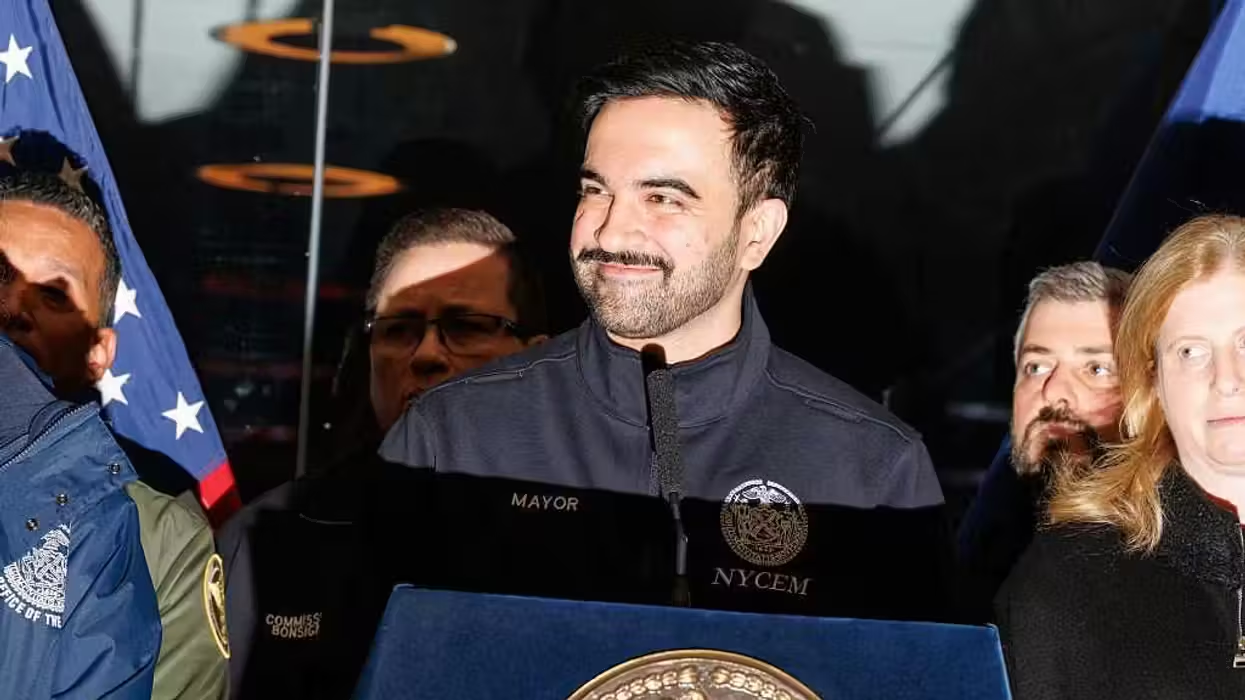Workers tearing down a 150-year-old theater in northern Italy discovered a stash of hundreds of gold coins from the tail end of the Roman Empire.
What are the details?
The Cressoni Theater in Como, north of Milan, opened in 1870 and closed in 1997. The building briefly housed a movie theater after that, before it was scheduled to be torn down and replaced with luxury apartments.
The coins were discovered in a soapstone amphora, a type of jar with a narrow neck and handles, which was partially sticking up from the dirt floor. Inside the amphora, the coins were “stacked in rolls similar to those seen in the bank today,” according to rare coins expert Maria Grazia Facchinetti.
Local archaeology superintendent Luca Rinaldi told the Times of London that the value of the find was “inestimable,” adding, “[i]t’s practically an entire collection, unlike anything else ever found in northern Italy.”
Rinaldi said that in some other discoveries, the coins have become stuck together but “these are all separate, it was like opening a wallet.”
The coins bore the symbols of emperors Valentinian III (emperor from A.D. 425 to 455) and Libio Severo (Libius Severus, A.D. 461 to 465). None of the coins from this cache had been minted later than A.D. 747, according to Facchinetti. This late period of the Roman Empire was marked by poor leadership, invasion, instability, and loss of territory.
The site where the coins were found was close to the location of the ancient Novum Comum forum, an important economic center.
What did the cultural minister say?
In a tweet describing the discovery, the Italian Ministry of Culture quoted Minister of Cultural Heritage and Activities Alberto Bonisoli as saying that this was "a discovery that fills me with pride," according to Google translate:
In a news release, Bonisoli said, according to a translation provided by the Washington Post: "We do not yet know in detail the historical and cultural significance of the find, but that area is proving to be a real treasure for our archaeology."







